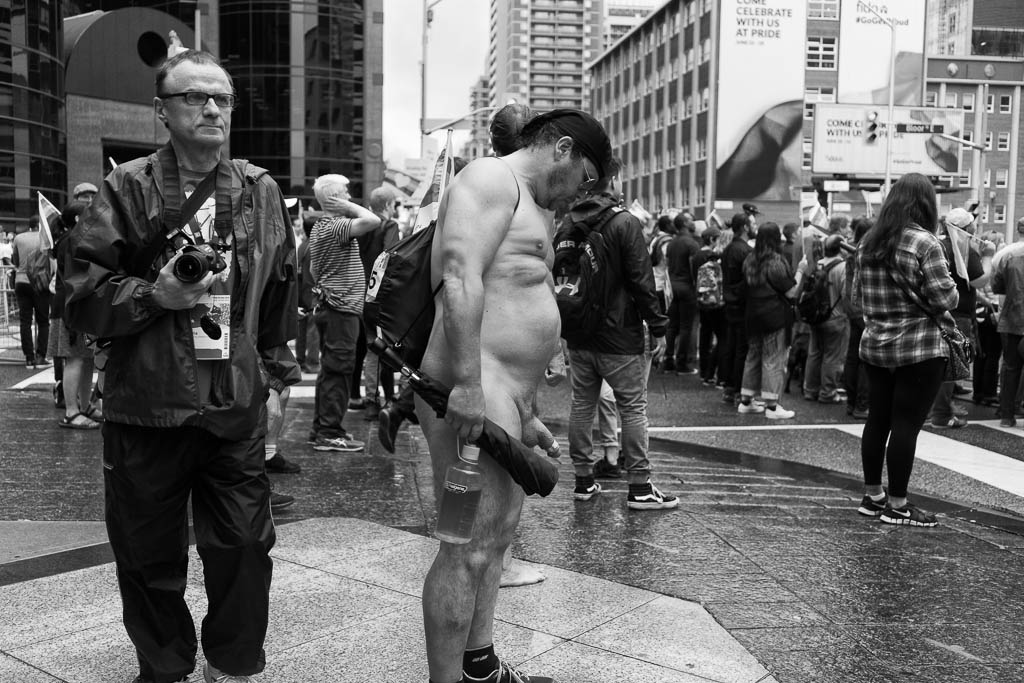While yesterday’s post concerned bodily autonomy in the face of state power, today’s post concerns the related matter of photographic autonomy in the face of media power. Ironically, most contemporary public conversations happen on media platforms that are privately own. These are the virtual equivalent of POPS or “Privately Owned Public Spaces.” The problem with POPS is that, although they feel public, the usual constitutional protections, like freedom of expression, don’t apply. Private ownership means that the owners of Instagram and Facebook and Twitter and Telegram and Tik Tok and YouTube get to regulate whatever happens on their respective platforms and nobody gets a say. All those arcane clauses in your TOS or EULA documents, those are the law of the land.
In Instagramistan, for example, nudity is pretty much verboten. Assuming you can reach a real person there, you can argue with them until you’re blue in the face about artistic merit or breast feeding or innocent incidental nudity. It doesn’t matter. Their decision is final and there is no further recourse.
This means that nudity as speech, nudity as a way to change hearts and minds, nudity as protest, can’t even get a foothold on these platforms much less convey a message. (Some platforms, like Twitter, don’t regulate nudity, but that could change if/when Elon Musk assumes ownership.) Never mind that nudity as speech has a long and venerable tradition, from King David dancing in his ephod and flipping his schlong (think Scotsmen dancing at a ceilidh) to Lady Godiva protesting oppressive taxation to the Doukhobors in Canada who protested, well, just about everything.
In the context of Pride, public nudity may be celebration, it may be foreplay, it may be strategy, it may be a lot of things. It may also be an assertion of the simple fact that embodiment is fundamental to human experience. Not just queer human experience. All human experience. And attempts to regulate how we talk about embodiment often infantilize important aspects of that experience, like the joyful gift of sexual pleasure, the mystery of its genderedness, and its many frailties that usher us to our deaths.
This is one of the reasons I maintain my own private domain. It’s a fallback. Here, at least, in my own space, I can do my modest part to push back against the ridiculous prudery of Instagram and Facebook.
